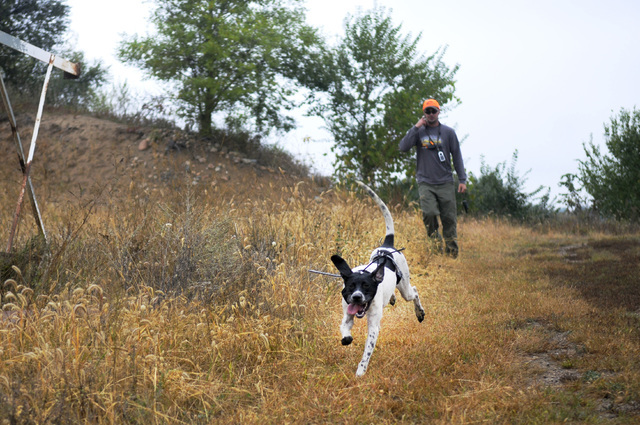Respect tops outdoorsman’s code of conduct

When it comes to hunting and fishing, there is an unwritten code of conduct that should guide each of us in our actions as we go about those activities. To some, this code may seem a bit old fashioned, but adherence to its principles will go a long way toward insuring the next generation and the one after that still have access to these traditional outdoor pursuits.
Since this code is unwritten, it behooves each of us who are now closer to the end of the trail than we are to the beginning to pass the code, along with its principles and values on to the generations that follow, even if they complain during the process. And sometimes we have to be reminded of the code ourselves.
One of the first principles that comes to mind is respect. A true sportsman has respect for the fish or game he is pursuing, for his fellow outdoor enthusiast, and for himself.
On the first deer hunt after recovering from a pulmonary embolism, I shot at a forked-horn mule deer as it stood about 80 yards up the hill from the place where my friends and I had gathered to discuss the morning’s hunting efforts. The little buck jumped at the shot and ran up the hill before disappearing in a group of trees.
“Did I hit him?” I asked out loud without really directing the question to anyone in particular.
Breathing at altitude was still a chore, and I wasn’t too excited about climbing up the hill to look for blood or other indicators of a hit. Especially when I wasn’t too sure there would be something to find once I got there. Sensing my quandary, Don said, “I’ll go look. My dad always taught me to go look, no matter what.”
Within a few minutes, Don found a blood trail. The buck had indeed headed uphill at first, a sign that I may have missed the shot, but once he made the trees the buck turned downhill where expired about 50 yards later. Having respect for the game we hunt requires us to make every effort to verify whether we hit our quarry, to recover downed game, and to care for it in a manner that facilitates its use in the kitchen.
On another occasion, my friends and I waited in the cold for opening day of the Utah pheasant season to officially begin. Shooting time was 8 a.m., so we woke up early to make sure we were in place well before shooting time. Our chosen waiting spot was at the top of a farmer’s field we had permission to hunt. With our game vests on and Bear, my golden retriever, sniffing anxiously about, it would be obvious to any passerby that we weren’t waiting for the bus.
With a few minutes to go, a vehicle suddenly pulled up and four or five people jumped out. Without saying a word, they ran past us at full speed with shotguns in hand. They jumped the fence marking the edge of “our” field and then ran its full length to the other end. Along the way they jumped several roosters and sent them flying to destinations unknown.
At the far end of the field, this group of interlopers assumed positions that would allow them to shoot any birds we sent their direction.
While the field did not belong to us, we had made the effort to be there early and setup where the farmer had given us permission to do so. Had the second group stopped and talked with us, we probably could have worked something out, but their lack of respect for other hunters ruined the hunt for both groups. We lost the opportunity to find the birds they flushed prematurely, and they lost a chance at bagging a pheasant when we chose to work the field in another direction.
Though hunting and fishing are both highly regulated activities, we are expected to follow the honor system. Unlike basketball, football or similar activities, where referees are on the court or field with you at all times, game warden ranks are thin. That means we may go an entire season without seeing one. So we often have to make decisions without the luxury of knowing the “ref” is somewhere nearby to see if we make the wrong choice.
We show respect for ourselves by making the right decisions when there is an opportunity to make the wrong one. Come to think of it, that also shows respect for the resource and for each other.
Freelance writer Doug Nielsen is a conservation educator for the Nevada Department of Wildlife. His “In the Outdoors” column, published Thursday, is not affiliated with or endorsed by the NDOW. Any opinions he states in his column are his own. He can be reached at intheoutdoorslv@gmail.com.